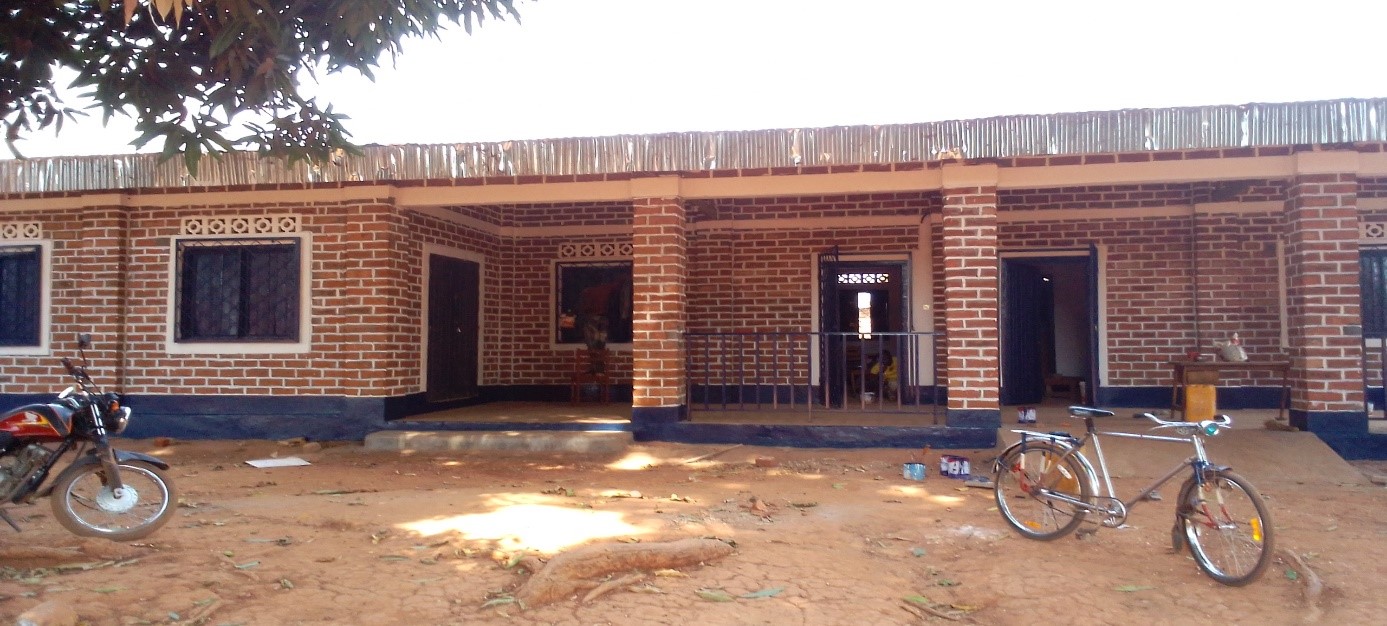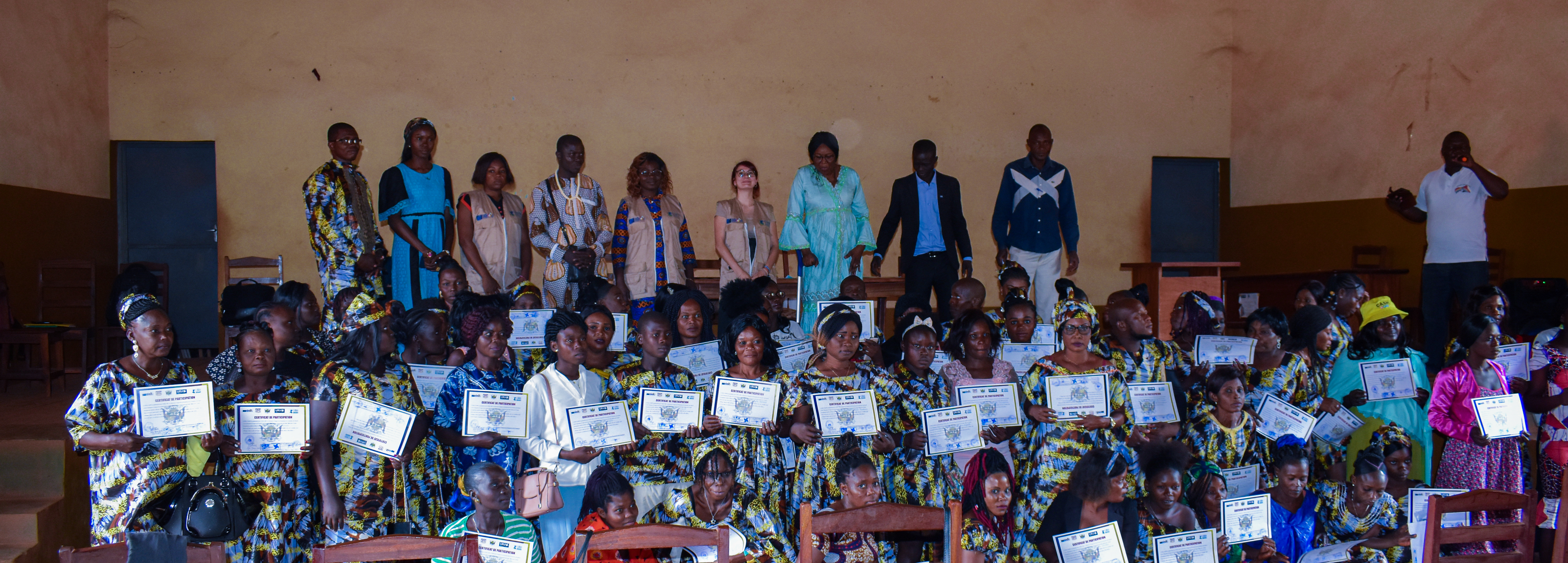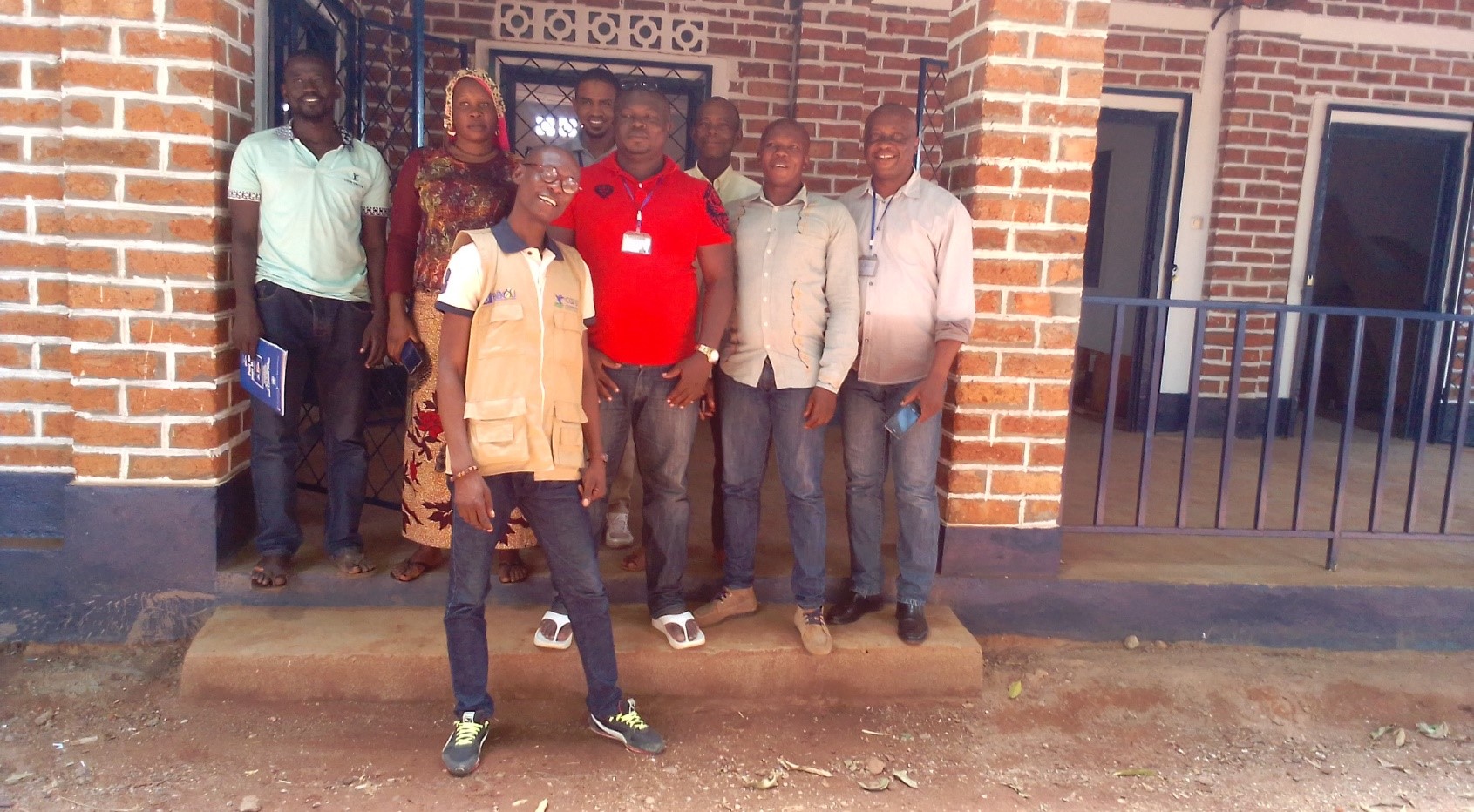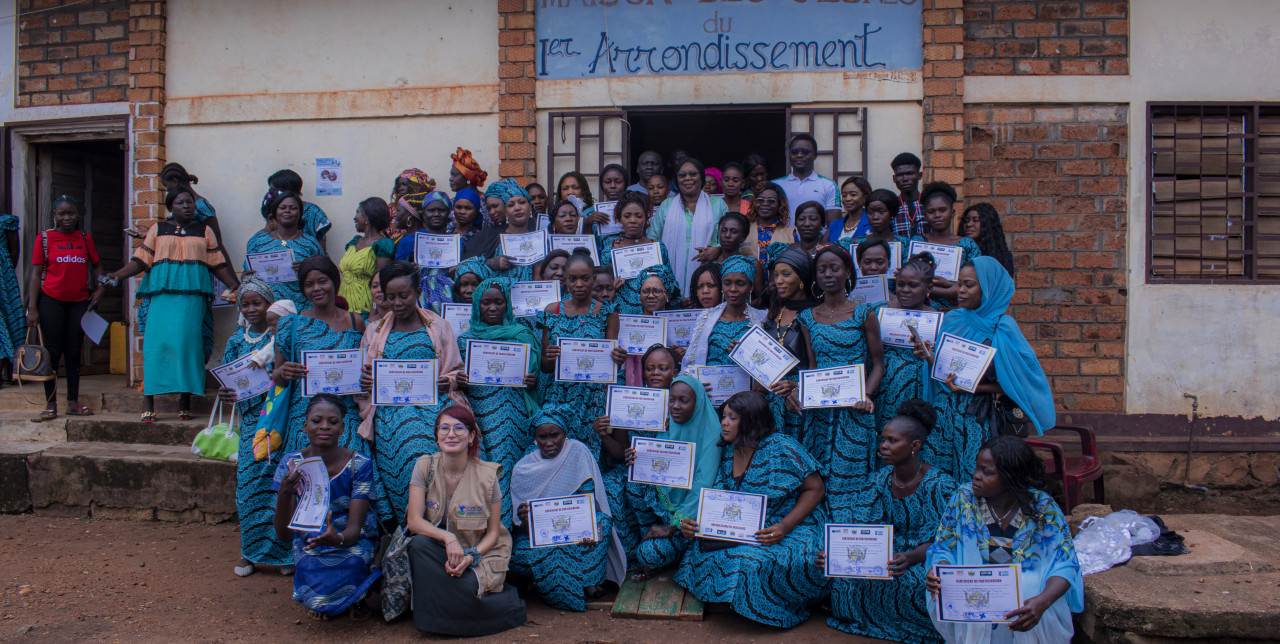24-02-2023 | di COOPI
CAR. The rebirth of Bria's youth centres for the girls
The situation of young people in Central African Republic
Jules Gilbert Keïta is a youth inspector and the interim sports director of the Maisons de Jeunes et de la Culture in Bria, Central African Republic, youth recreation centers supported by COOPI – Cooperazione Internazionale from July 2021 to January 2024 thanks to the European Union Bekou Fund through the project 'Youth, Hope of the Central African Republic: Masséka békou ti Bé-Afrika'.
His job is to provide assistance to young people, who make up the largest segment of the population in this Central African country, and in particular in the city of Bria. As Jules points out this could be “a source of opportunities for the socio-economic development of the city”. However, young people face many vulnerabilities:
There are real challenges in terms of education, reproductive health, and unemployment. There is a high rate of relapse into illiteracy because many of those who went to school, unfortunately, had to drop out for various reasons. Drug use among 12-35-year-olds is also common and all these behaviors often leave a negative mark inside the communities."
The two "Maison des Jeunes" in Bria
Jules Until 2020, hostility and social conflict prevailed in Bria. In 2021, efforts were made to restore harmony through the creation of "Maisons de Jeunes et de la culture," but various difficulties limited the activities of the Piango district youth center. Before the Bêkou project, the youth centre only offered a few educational lectures to make members aware of social issues and provided a screen to watch documentaries. Now, however, according to Thierry Evariste Binguinendji, Prefect of Bria, the youth centre in Bria is 'reborn'. Jules, instead, says:
Thanks to the training received and the continuous support of COOPI staff, an action plan has been adopted. The range of activities offered has expanded and the quality has improved. It has become easier for me to work, now I know I have the skills to understand the needs of our youth and to organize more specific activities for them."
In the Gobolo neighborhood, in fact, a 30,000-square-meter area 3 kilometers from the city is allowing the construction of a new “Maison de Jeunes”. Recently taken over by the Ministry in charge of the Promotion of Youth, Sports and Civic Education (MPJSEC), the center intends to be a counseling place for youth and women, with the prospect of intensifying activities in sewing, soap making, basketry, masonry, carpentry, mechanics, small livestock and poultry. A library will also facilitate the study and education of youth and all community members, and sports facilities for soccer, basketball, handball, volleyball and children's games will be built, which Jules will take care of.

Piango Maison de Jeunes, Bria, Central African Republic.
The difficulties of the girls
Jules is enthusiastic about the work carried out so far:
The results were not long in coming. We noticed right away that a more participatory approach, both by staff and youth, is a good way forward. We want to integrate the most vulnerable through literacy activities."
In particular, Jules regrets that not many girls participate in the activities organized by his youth center. According to him, this is due to the language barrier, because girls think that only French is spoken in the Maison and are ashamed to participate. Jules’ goal, therefore, is to make them comfortable:
We will start with literacy classes. Then we would like to take care of the girl mothers with some income-generating activities. The situation of girls is a real problem in the city of Bria: early marriages and unwanted pregnancies soon turn girls into young single mothers."

Girls' awards ceremony.
The power of literacy
Wadala, a beneficiary of a literacy course, says learning to read and write has changed his life: "Before taking this course, I could not write my name or hold a pen", he says. Mariam Moussa, a student in a literacy course organized in Piango who dropped out of school to marry young, also confirms the importance of literacy and is full of dreams for her future:
I dropped out of school when my parents got me married. Today I can read, write and speak a little French. I would not want my learning to stop there. I would like to continue computer training in this youth center, specialize as a kindergarten teacher, work in an NGO or as a seamstress in my workshop."
After the politico-military events that rocked the Central African Republic, the weakness of the education system, the lack of youth-oriented activities, and the deteriorating socio-economic situation directly affected young people aged 19-34, who were estimated at 2.5 million in the country in 2019. COOPI's work in Central African Republic focuses on, among other things, post-conflict social cohesion, governance and human rights, and emergency training and education. Since 2021, the European Union's Bêkou Fund has been supporting 17 youth centers in the Country.

Bongolo staff with a representative from the Ministry of Youth.




 Central African Republic
Central African Republic